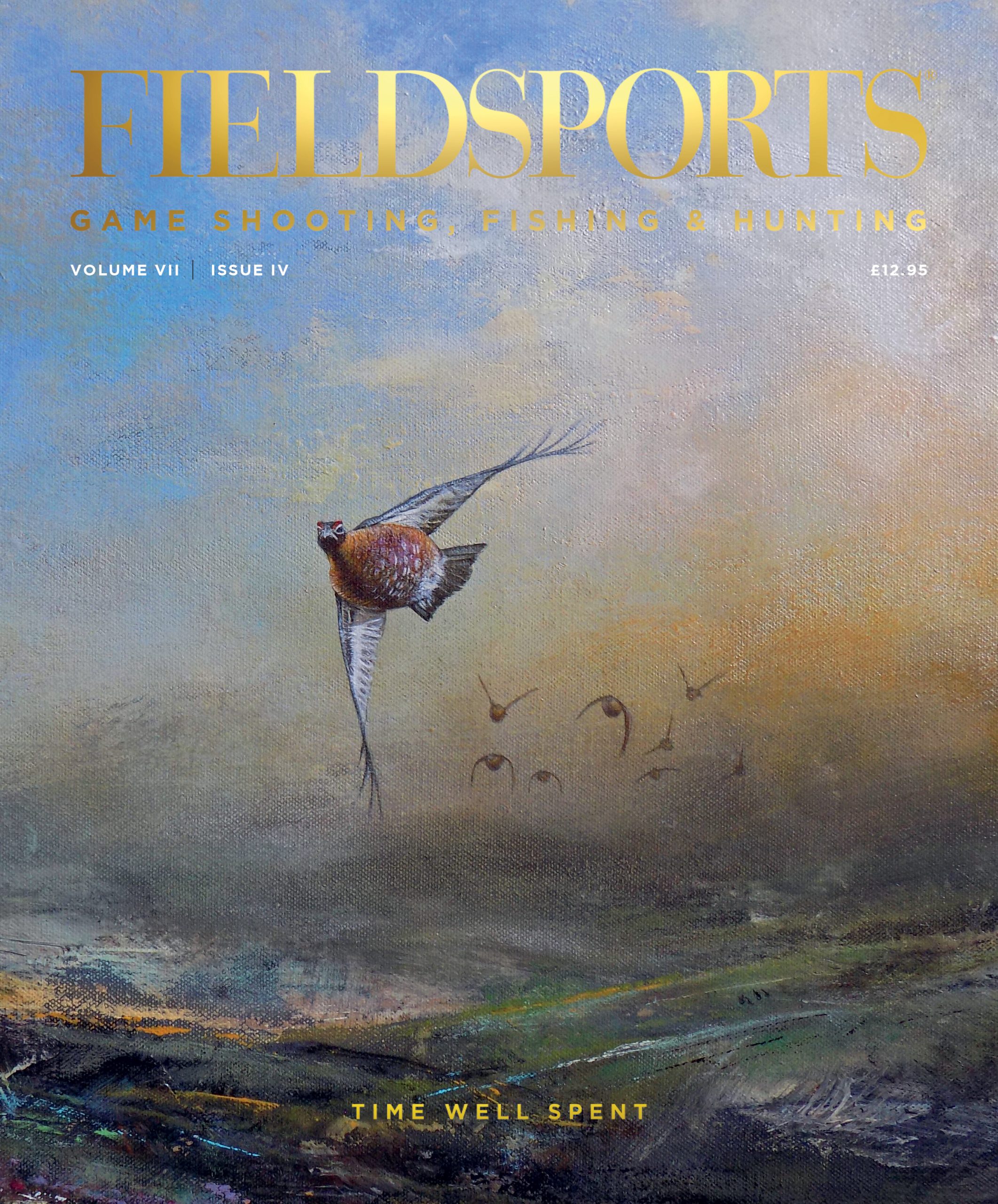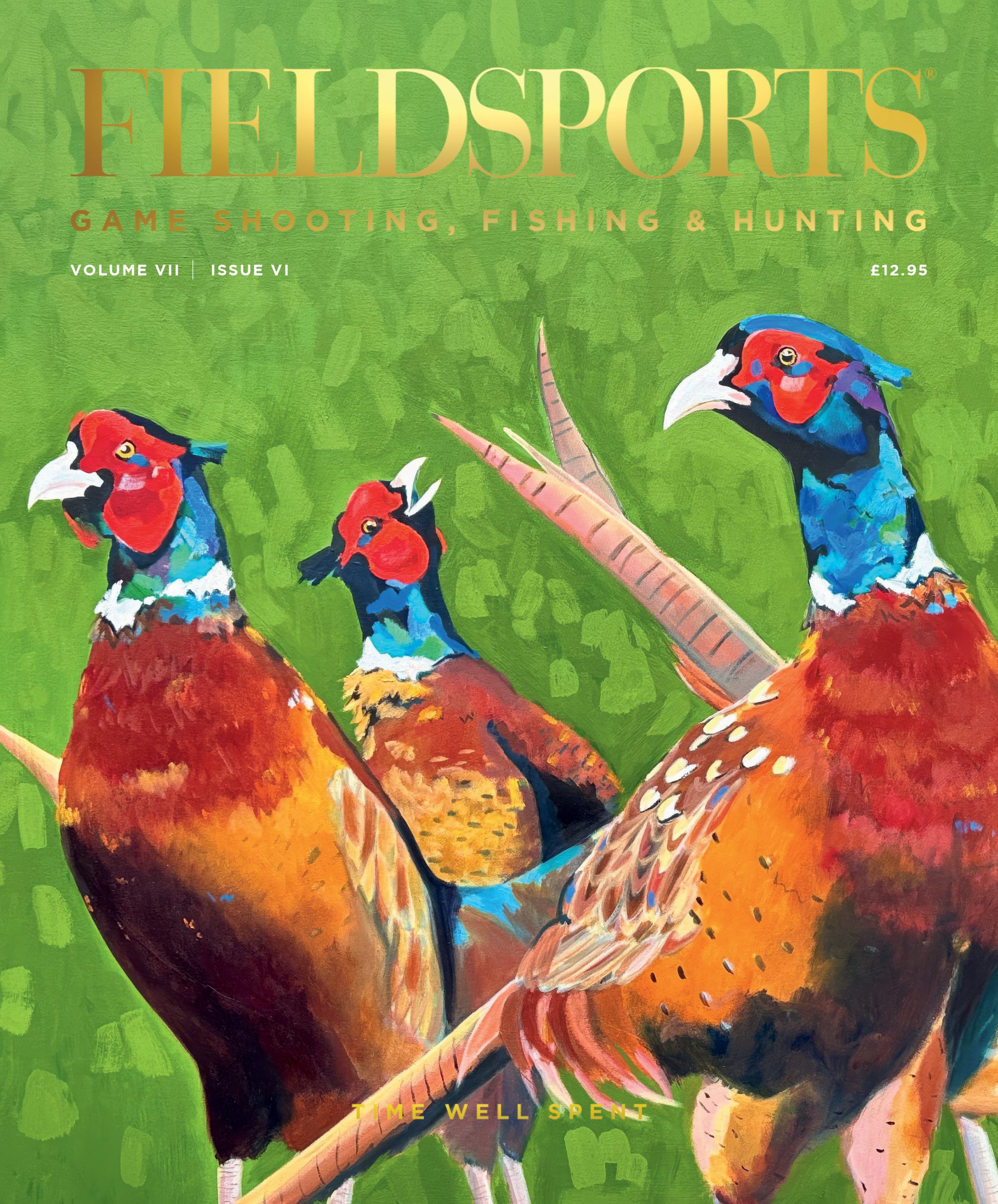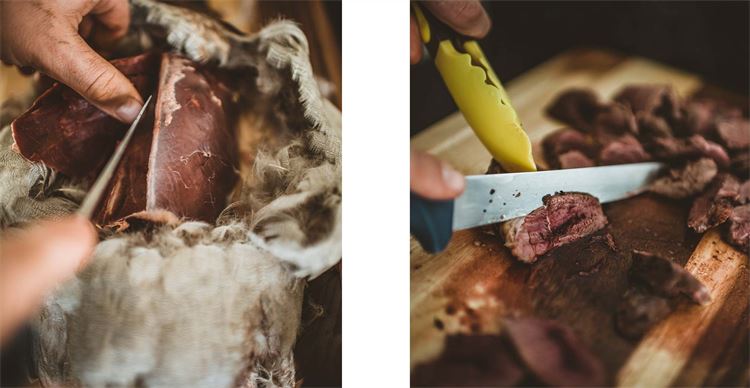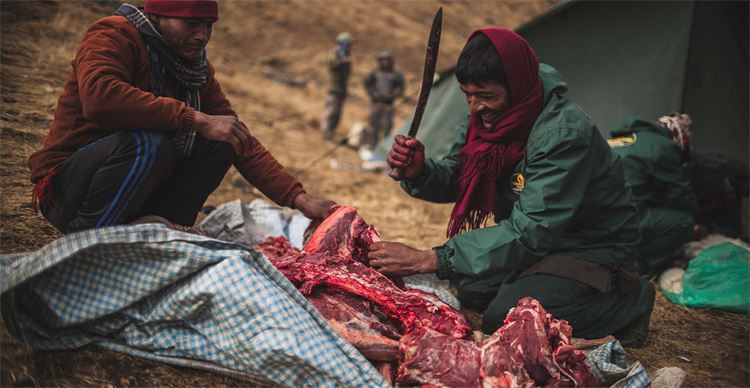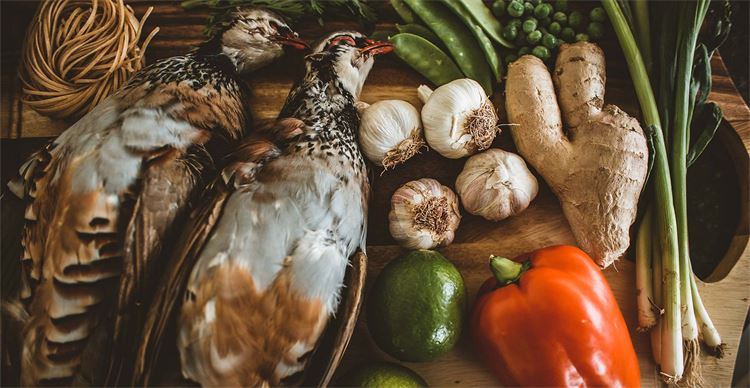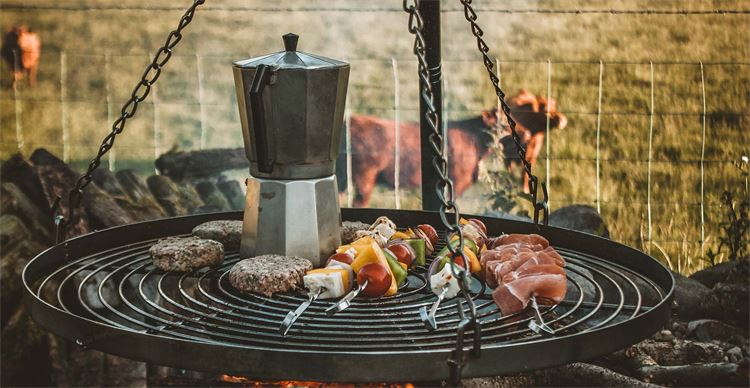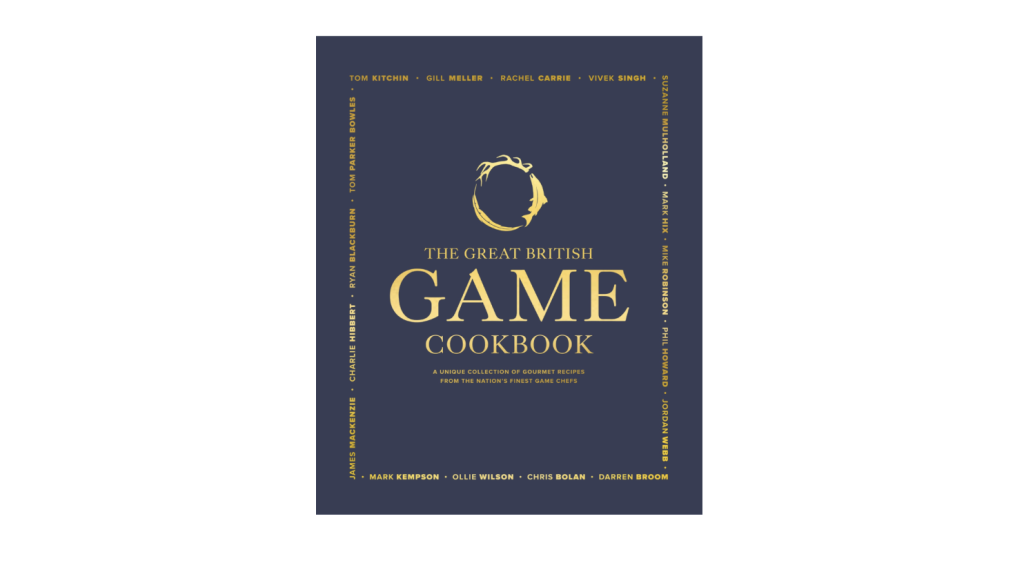- News
- Game shooting
- Fly fishing
- Big game
- Sporting art
- Guest editors
- Gear
- Competitions
- More
-
-
More
-
- No posts selected.
-
-
-
-
★ Win a Schöffel Country shooting coat for everyone in your syndicate worth up to £6,000! Enter here ★
The carnivore diet
For the global hunting community, carnivore diet proponents are unlikely to provide a useful ally, but game meat could play a very important role as meat-eaters endeavour to balance our impact on the planet.

Nature’s bounty and harvest during the winter months is exceptional. Come February, it’s always my aim to have enough meat stored to see me through to August. By then a few summer roe will have provided a top up, and the culinary delights of the first red grouse will be upon us.
It is of course about more than just providing lean, ethical, high quality and exquisitely flavoursome protein for the home. I enjoy the process immensely. From the skill and knowledge to be successful on the foreshore, to the management contribution offered by culling hinds, this combination of positive impact and the thrill of embracing our hunting heritage is unlike any other activity I participate in. It’s real, it’s honest, and it is the ultimate acknowledgement of what it takes to put food on the table. As a result of this, I consume a lot of meat in my diet. Far more than the average person.
In the last year I have become a lot more conscious as to the requirements of my body and what it needs to function optimally. Maybe I am just getting old and concerned with such things now; we all know that twenty-something-year-olds are invincible. I certainly thought I was. Rather ignorantly, I had always been quite flippant about leafy greens being a waste of time to eat. If I wanted salad, I would order chicken; an extra helping would inevitably be protein over veg. Today, however, I understand better the nutritional requirements of my body, and the benefit of eating different foods beyond my meat-focused obsession. Take broccoli as an example. Low in calories, it’s a vegetable packed with essential vitamins as well as iron, magnesium and zinc – all needed for our bodies to function healthily. On top of that, sulforaphane is produced when we eat broccoli (at higher levels with younger plants, as is true of all cruciferous vegetables). Sulforaphane is one of the most potent food-derived anticarcinogens, medically proven to prevent the growth of many cancers including breast, prostate, skin and lung to name a few.
All this leads me to the main subject of this article; a diet craze which is sweeping the world. It could be suggested it was a diet made for hunters, because it’s all about grass-fed red meat and prime steaks. What could be better? The ‘carnivore diet’ is enjoying a rapid rise in popularity, while at the same time proving to be one of the most controversial diets around. Perhaps the key to its success is the simplicity with which it can be followed. It doesn’t get much easier. Anything which has walked, crawled, swam, flown or was otherwise born is fair game. There are no quantity restrictions. No timings to follow. As long as it’s meat, fill your boots.
Ultimately the carnivore diet is a restricted carbs diet, which in itself is nothing new. The well-documented ketogenic diet is another form of carb restriction, all be it more complex to follow, but unlike the carnivore diet, it has been scientifically tested and scrutinised. For the most part, information on the carnivore diet is anecdotal. It is at the extreme end of the scale, cutting out everything else. Salt and pepper is just about the only other addition you can supplement your meat dishes with (some people also include cheeses). It would certainly require a bountiful imagination to avoid monotony. As much as I enjoy a perfectly grilled medium-rare steak with minimal seasoning, even I would get tired of that after a few weeks.
The last few years have seen a rejuvenated push from the global hunting community to reconnect a disinterested general public with our more primitive roots. To ignite an interest in a shared heritage which sourced wild meat from the great outdoors – where hunters were revered and championed, not held in contempt. Often the common ground harnessed to create a feeling of unity has been food. In the UK the British Game Alliance is the most recent and widely backed incarnation of this. Not only pushing game meat as a source of protein for everyone, but hoping to instil strong ethical practices from suppliers. It would seem the carnivore diet plays perfectly into our desire to encourage more game meat consumption. However, it’s not as clear cut as that.
It is beyond the scope of this article to dig into every detail and consideration, and I would direct those interested to check out a number of in-depth podcasts available from both sides of the fence. Dr Rhonda Patrick talks a lot of sense generally when it comes to diet, while Dr Shawn Baker, an orthopaedic surgeon, is one of the most high profile proponents of the carnivore diet.
The people this diet seems to have connected with most are those with forms of autoimmune disease. In many of these cases, vast improvements in ailments have been seen and recorded. The logic often used by ardent carnivore followers is that we as humans developed primarily as carnivores, with digestive systems far more akin to modern carnivores than any of the herbivores. What is often neglected is the comparison with other omnivores. It is also cited that up to 98.5 per cent of all flora on the planet is actually inedible, with intolerances often shown to edible options, even if they are very minor. The counter to this comes from studies which have shown how our bodies react to plant compounds used to ward off insects. The stress response we experience can actually have a positive impact on health. It’s a similar mechanism by which exercise and saunas can improve symptoms of cardiovascular and rheumatological diseases.
It is absolutely true that removing all plants and nuts eliminates almost all allergens and anti-nutrients. In this respect, underlying health issues which may result from dietary intake are likely to be alleviated with a meat-only diet. That is not to say, however, that your system had issues with the entire intake now being restricted. It is also worth considering the baseline used to measure health. If your current consumption is a mix of generally unhealthy options, processed foods, grease and sugar, then any kind of diet which restricts these is likely to have a profoundly positive impact. However, this is more to do with the garbage cut out than it is to do with the new intake. Someone going from a balanced and healthy diet will likely see less improvement in health, if any at all.
One of the most well-documented cases of the carnivore diet turning around someone’s life is that of Mikhaila Peterson, who can be easily found online. She suffers with a very severe, largely undiagnosed autoimmune disease, which has left her ill for almost the entire 26 years of her life. From debilitating depression and chronic fatigue, to the disintegration of her joints, including hip and ankle replacements by the time she was 17 years old.
In an attempt to find relief for some of her symptoms, she began to experiment with removing certain foods from her diet. The end result of this is that today she only eats grass-fed beef. Apart from seasoning with salt, her only other intake is water. Consuming this at a rate of around 2½lbs a day, she is now more than a year in. Her long list of medical issues have largely disappeared. She has lost weight, and it has to be said she looks great. She openly discusses her blood markers, all of which suggest no ill-effects resulting from her all-beef diet. Read the many comments on her videos, and you will find scores of people who have also experienced positive results from the carnivore diet. However, the vast majority also discuss underlying health issues which lead them down this route.
Currently there is no scientific evidence to support the diet, but there are a number of cautionary notes when it comes to understanding the impacts of such a drastic change in lifestyle. The key, according to Dr Rhonda Patrick, lies in digesting the mechanisms causing the effects seen. A switch to a higher protein diet will naturally cause your body to consume less because of how it reacts as protein increases and fibre decreases. It becomes a natural calorific restriction due to the effect of dietary monotony. This will be a major factor in the successful weight loss enjoyed by dieters.
What becomes very interesting, is that medical tests have shown calorific restriction and fasting can have a drastically positive effect for people with autoimmune diseases. The most recent research was undertaken by Dr Valter Longo, which showed how the natural stress response of your body resets the immune system during fasting, cleaning away damaged DNA and cells. In the first 72 hours, as much as 30 per cent of the immune system can be cleared out. Our organs physically shrink, later expanding again.
Imbalances in the gut microbiome have also been linked to autoimmune disease. Recently the University of Southern California reported microbiome changes after just five days of diet adaptation, potentially explaining the immediacy with which new ‘carnivore’ dieters enjoy improvements in health. High-protein substances like meat are processed higher up the digestive tract, causing lower intestine fasting. In basic terms this can kill off bad bacteria. What is unclear is the long-term effect, and it has been suggested that the restrictive nature of the diet could eventually have negative effects on the good gut bacteria.
It’s widely accepted by the greater community of scientists and doctors, that we simply don’t know enough about the effects of a meat-only diet, despite there being isolated anecdotal evidence of meat-heavy diets over decades. As far as we know, every human civilisation on record has included fibre to some extent.
For the global hunting community, carnivore diet proponents are unlikely to provide a useful ally. Beyond the serious question as to whether it’s a diet which can be responsibly advocated, the biggest issue lies in one of the proclaimed benefits of game meat. That is the lean, ‘reduced fat’ nature when compared to agricultural livestock. With a diet confined to meat-only, the fat intake associated with beef in particular becomes essentially important. In this case, one of the great benefits of consuming game becomes a negative aspect over other alternatives.
My parting thought on this lies in our social responsibility to the environment when it comes to our consumption. If it’s true that we would all be healthier on a more ‘meat-heavy’ diet, what are the environmental consequences of following this? It’s quite the opposite message to those campaigning for greater environmental consideration when it comes to food consumption. That, however, is a topic for another time, but one where game meat could play a very important role as we endeavour to balance our impact on the planet.
Related Articles
Get the latest news delivered direct to your door
Subscribe to Fieldsports Journal
Elevate your experience in the field with a subscription to Fieldsports Journal, the premium publication for passionate country sports enthusiasts. This bi-monthly journal delivers unparalleled coverage of game shooting, fishing and big game across the UK and beyond.
Each issue offers a stunning collection of in-depth features, expert opinions and world-class photography, all presented in a timeless yet contemporary design.
Save 10% on shop price when you subscribe, with a choice of packages that work for you. Choose from Print & Digital or Digital only with each journal delivered directly to your door or via the app every other month, plus access to past issues with the digital back issue library.
